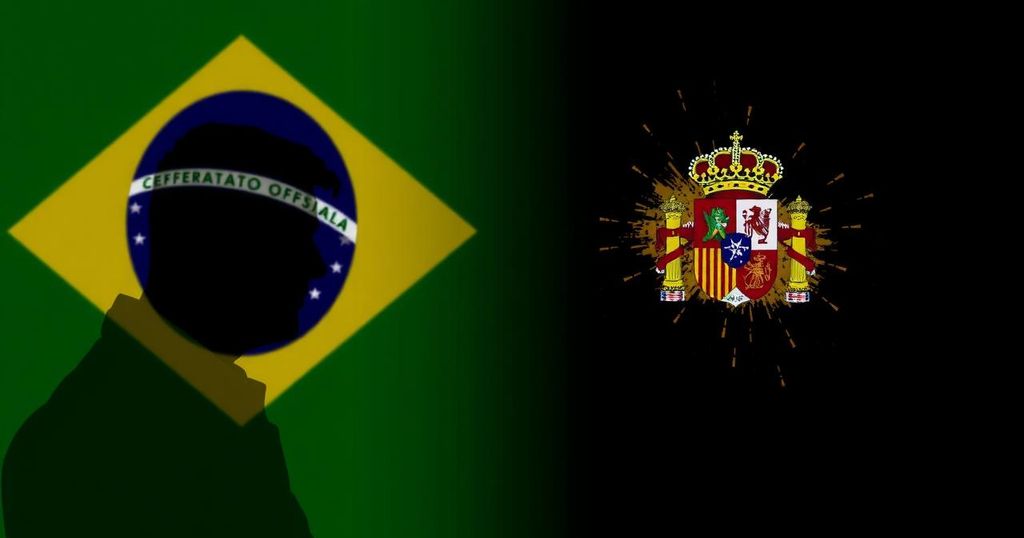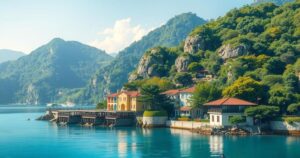Lula and Sánchez Face Criticism for Maduro Connections Amid UN Pro-Democracy Event

Brazil’s Luiz Inácio Lula da Silva and Spain’s Pedro Sánchez received criticism for their ties to Nicolás Maduro amid a pro-democracy event at the UN, where they avoided discussing the Venezuelan crisis. Chile’s President Gabriel Boric urged world leaders to prioritize democratic values. Reports of Spain negotiating with Maduro’s regime complicate Sánchez’s position, while Lula’s diplomatic stance faces challenges. Both leaders seek to shift focus to broader global concerns, particularly regarding far-right movements, as they navigate politically sensitive relations with Venezuela.
During the recent United Nations assembly, Brazil’s President Luiz Inácio Lula da Silva and Spain’s Prime Minister Pedro Sánchez attracted scrutiny for their connections to Nicolás Maduro’s regime, all while organizing a pro-democracy event that excluded any mention of the Venezuelan leader. The event aimed to highlight risks posed by far-right movements but backfired as Maduro’s ongoing political repression drew attention to their complicity. Chile’s President Gabriel Boric was among those who publicly criticized the reluctance of Lula and Sánchez to address the situation in Venezuela, calling for a commitment to democratic principles regardless of political affiliations. While both leaders have not recognized Maduro’s electoral victory, they have also refrained from endorsing opposition claims against him, leading to domestic and international backlash, particularly aimed at Sánchez following a controversial agreement facilitating the asylum of opposition figure Edmundo González Urrutia. The criticism intensified after images surfaced showing Maduro loyalists meeting with Spanish officials, with González Urrutia claiming coercive conditions linked to his asylum. This incident has prompted calls for accountability in Spain’s handling of its relationship with Venezuela, with opponents demanding further recognition for González Urrutia as the legitimate victor of the election. Despite Lula’s long-held ties to Venezuela, he has advocated for diplomatic engagement over sanctions. However, skepticism remains about Brazil’s approach to the crisis. The Venezuelan regime has largely ignored calls for transparency and democratic reforms from Lula and other leaders. Meanwhile, both Lula and Sánchez are attempting to divert global discourse from Venezuela to more pressing concerns, such as the implications of a potential Donald Trump presidency that may bolster far-right ideologies across the globe. As they strategize to champion democratic values and combat misinformation, Lula emphasized the necessity for nations to resist intimidation by private entities that operate beyond the law. However, significant challenges persist as they tread delicately around their political ties with Venezuela’s contentious regime while navigating global political currents.
The current political landscape in Latin America, especially in relation to Venezuela, has been significantly shaped by Nicolás Maduro’s regime. Following a disputed election in July, where Maduro claimed victory amidst widespread allegations of electoral fraud and political repression, global leaders have been forced to reconsider their diplomatic stances. Brazil and Spain, both led by leftist leaders, are facing criticism for their attempts to navigate relations with Maduro while simultaneously advocating for democratic reforms and human rights. The complexities of such relationships reflect broader geopolitical tensions and the risks posed by authoritarian governance, as well as the reactions from international observers and opposition figures.
In summary, the interactions between Brazil’s Lula and Spain’s Sánchez with Maduro’s Venezuela reveal deep complexities in international diplomacy regarding authoritarian regimes. Both leaders are caught between advocating for democratic principles and managing their political affiliations, particularly as they face rising criticism for perceived complicity with a government known for its repressive tactics. Their efforts to redirect global concerns towards combating far-right movements indicate a strategic maneuver to overshadow the ongoing Venezuelan crisis, though the efficacy of such a strategy remains questionable as international scrutiny increases.
Original Source: www.batimes.com.ar






